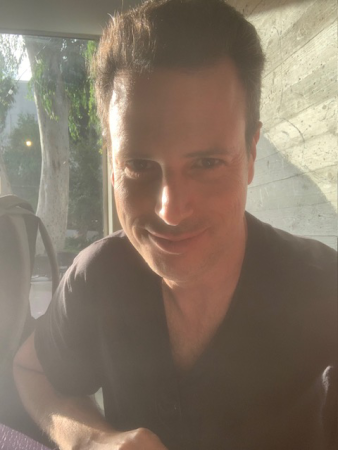What:
The RTC Research Forum, formerly known as the RTC Brown Bag, is a colloquium series sponsored by the Rhetoric, Theory, and Culture graduate program in the Michigan Tech Department of Humanities. Each month, faculty and students in the program present research on a wide range of topics. The forum offers an opportunity for colleagues and peers to discuss current research, prepare for formal conference presentations, and for students to receive feedback on presentation practices.
Abstract:
The claims made by technology companies regarding the advancement of autonomous machines raise significant concerns about their implications for democratic governance. A machine that is capable of independent thought and action poses a potential threat to democratic judicial and political systems, as it undermines the autonomy of the people. Drawing on phenomenological insights, I will first clarify why some of these concerns may be misplaced by emphasizing that autonomy must be achieved rather than presupposed. I will then argue that the recent deployment of Artificial Intelligence (AI) systems highlights that ownership and agency are constituted through public speaking rather than being intrinsically tied to autonomy or self-rule. While the former gives the power to begin anew, the latter is marked by territoriality, exploitation, and coercion.
An autonomous entity supposedly possesses an identity, always returns to itself since it thinks—calculates the world independently of social-political engagements. As such, it remains unaffected by contingency, allowing it to justify its beliefs and actions through established rules. Additionally, autonomy presupposes agency, as a self-ruling entity is necessarily the cause of its own actions. And as Jacques Derrida explains, since the people in a democracy are autonomous or self-rulers, they have the force to determine the law (Derrida, 2025, p.13). In contrast, in our liberal tradition, which dates back to John Locke, democratic citizens are seen as individuals or natural entities, and therefore free from legal constraints. This freedom grants them the right to own property and other natural rights, empowering them to resist any claims of ownership made by authorities. However, with the rise of AI systems, individuals in democratic nations are increasingly losing their natural rights. The reduction of experience to thinking—calculating across all sectors by AI systems violates individual rights, for instance, by scraping texts without the authors’ consent. Moreover, due to the widespread use of AI systems, nation-states can no longer effectively protect copyrights. As Derrida argues in the context of cloning, techno- scientific reason undermines today its foundation—the nation-state, which is responsible for distributing rights and protecting the dignity of its citizens (Derrida, 2005, p. 146).
The deployment of AI systems increasingly blurs the distinctions between nation-states and private technology companies. This phenomenon indicates a potential erosion of the nation-state’s power in contemporary governance and social organization. Nevertheless, the support that nation-states extend to technology companies developing artificial intelligence systems that exploit and oppress their citizens is not merely a historical phenomenon; rather, it reflects an intrinsic characteristic of any entity that claims autonomy. As the political writings of Derrida and Hannah Arendt illustrate, autonomy is constituted by private performances within the household, which can therefore be authoritative, ethnic, and exploitative. However, Derrida’s deconstruction of democracy illustrates that citizens can achieve democratic autonomy by responding to the imperative of justice and, thereby, superseding familial, natural, and irrational laws.
According to Derrida, the conflict between the rule of law and freedom within modern democracy is irreconcilable. The question of what a democratic citizen is — whether a subject of the law or a free individual — remains undecided. This undecidability allows citizens to face one another, constituting an ultra-political experience. Within this pluralistic and uncertain realm of meaning, complete autonomy—independence from contingency is unattainable. As a result, the concept of equality under the law, the meaning of justice in a democracy, turns unfounded, uncovering justice as fundamental. Since justice cannot be ruled, justice calls democratic citizens to rule, thereby achieving autonomy.
However, claims for justice lack the necessary political power to effectively resist an AI regime. According to Arendt, public speaking or public performances enact intersubjective political experiences which are fundamental to selfhood and agency, and therefore the meaning of the power of the demos. Public speaking is non-territorial, allowing citizens to appear before others unconditionally and to act uniquely. Moreover, since public performances are contextual, the self always appears anew, simultaneously generating the past and the future. The temporality of shared existence, which Arendt refers to as natality, constitutes the process of narration, calling to keep a record. Thus, public performance is agonistic—pluralistic, giving rise to new senses of self and agency, in contrast to private performance, which constitutes self-mastery and, therefore, is antagonistic—divisive.
Who:
Presented by RTC PhD canditate Lior Rosenfeld.
Lior Rosenfeld obtained an M.A. in Philosophy from the New School in 2020. Currently, Lior is a fourth-year Ph.D. Candidate at Michigan Technological University. In his research, Lior investigates how the phenomenological description of the life-world alleviates the tension between democracy and science as illustrated by contemporary examples such as climate change denial and vaccine skepticism.
All are welcome to attend!
When:
Friday, December 5, 2025
Where:
Petersen Library, Walker Arts & Humanities Center

